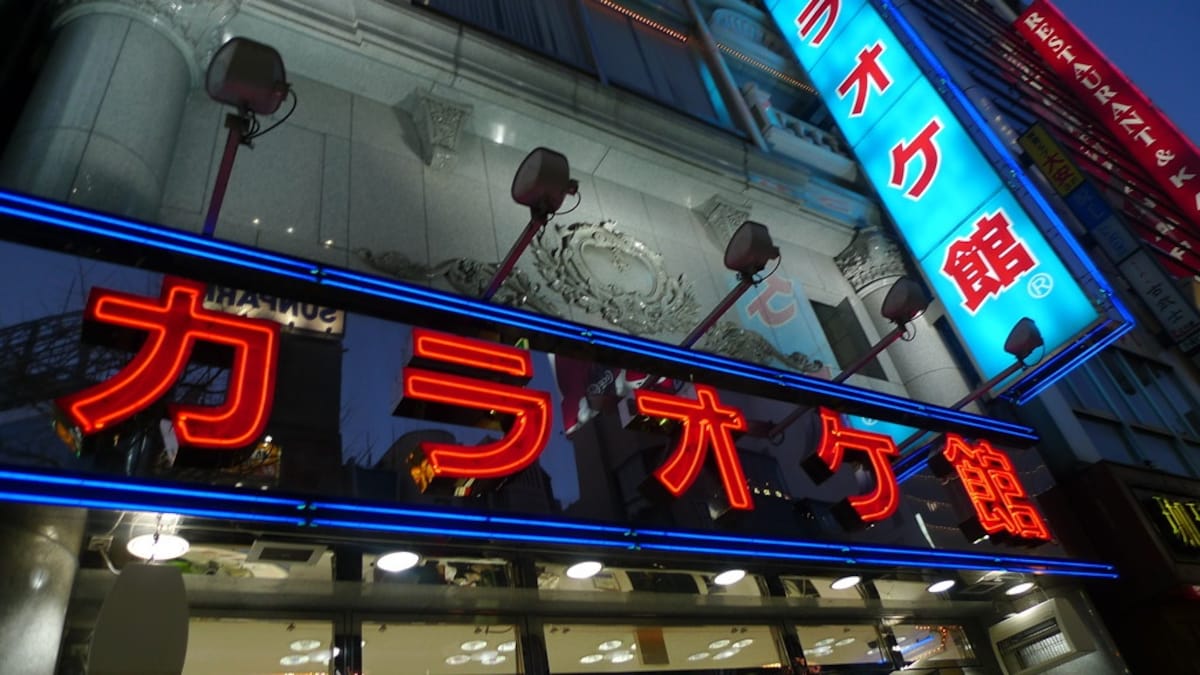All About Karaoke

While Japan is full of thrills and delights for locals and travelers, one of the simplest pleasures is one that's enjoyed all over the globe: karaoke. And while it changes depending on where in the world you are, we're here to teach you all about karaoke in Japan, from rocking out with friends to having a #MeDate improving your vocals.
By AAJ Editorial TeamWhat Is Karaoke?

Chances are, if you're reading this, you've heard the term karaoke before. However, depending on where you live, the word could conjure up a different image in your mind. So, let's bring it back to the very start and how karaoke has evolved over the years.
First things first, the word karaoke is a portmanteau of the Japanese word kara (空), which means "empty," and oke (オケ) , a shortened form of the English word "orchestra" (オーケストラ). So, karaoke refers to a lack of orchestra, which gives you a hint of how they were first used. In 1971, a musician and band manager by the name of Daisuke Inoue came up with the idea. Living in Kobe, a city in western Japan, Inoue and his band were unable to provide musical accompaniment for a sing-along café (歌声喫茶, utagoe kissa), which were wildly popular in Japan (America throughout the '60s were also into the sing-along craze). So, this device gave the establishments a way to keep the party going even when the band couldn't be there. By removing the lead singer's vocals, the audience could still sing and have a great time together. This proved to be so popular that Inoue created a few of these tape recorder-like machines to lease to shops and other events, beginning the musical sensation that swept the nation.
Who Does Karaoke?

In essence, pretty much everyone in Japan does karaoke! While there are, of course, people who would rather push needles into their fingertips than sing in public, the private rooms in Japan are much more accommodating for the less-than-stellar singers or the crooners who can't quite find the right key—but wanna sing out nevertheless. As the only people in the room are those in your party, you can feel more comfortable letting loose and not worrying about a stranger's harsh judgment. Not to mention, people in Japan are typically very encouraging and supportive. Teasing is not a part of the culture, and keeping the harmony (a big part of Japanese culture) means uplifting the less-talented singers while being careful not to overly praise the power performers.
As with every topic about a group of people at large, this doesn't apply to everyone. There will always be those groups who are more comfortable with ribbing and joking while singing, but, generally, karaoke in Japan is a safe and open place for all levels of singers.
Furthermore, karaoke rooms can typically accommodate your group, whether large or small. You can rock up to a karaoke shop as a couple, with friends or even a large sports team or company afterparty (keep in mind that large party rooms should be booked in advance). You can even go alone, which is commonly called hitokara (a blending of hitori de, meaning "by oneself," and karaoke). While some people might consider going to karaoke alone a bit sad, it's a great way to work on those songs you wanted to master (but couldn't belt in your shower) or a good place to practice your musical instruments—as music studio rental fees are much higher than a karaoke room.
Where Can You Do Karaoke?
https://commons.wikimedia.org/wiki/File:BIG_ECHO_Chayamachi.JPG
Everywhere! Next question!
Seriously, though, karaoke and nightlife in Japan go hand in hand. If there is a cluster of bars, clubs or restaurants, sure enough you'll find a karaoke joint. While there are small dive bars with karaoke machines (and a price per song), the majority of people (locals and travelers) will end the night at any one of the major chains. The most popular shops include:
Uta Hiroba (歌広場, colloquially called Utahiro)
Big Echo (ビッグエコー)
Shidax (シダックス)
Karaoke no Tetsujin (カラオケの鉄人)
Karaoke-kan (カラオケ館)
For a slightly more extravagant evening of crooning, there are a few deluxe shops offering stylish digs. Pasela Resorts (パセラリゾーツ) will make you feel like you're on vacation in Bali, while Shibuya's Karaoke Rainbow (カラオケレインボー) is your first step to Broadway success singing in New York-inspired rooms. And while both of these trendy (and very Instagrammable) places can be a little more expensive, depending on the day and time, they offer higher quality food and drinks. And if you're in Tokyo and missing the Western-style of karaoke and an audience to perform for, head over to Smash Hits in Hiroo, where a crowd will be waiting to hear your lovely voice.
When Can You Do Karaoke?

http://photozou.jp/photo/photo_only/302/17741276?size=1024#content
Anytime! Karaoke chains are open 24/7. You can celebrate milestones or birthdays or just take off work and go singing during the weekday. The price, which is generally charged every 30 minutes of singing, does change depending on when you go, so be aware of that. Daytime singers enjoy a deeper discount; though, if you plan to stay up all night, many places offer a very cheap nighttime package that lets you sing until the sun rises for a flat rate (or get some shut eye, which is quite common when the trains stop running and you need a place to rest your head). The best thing about karaoke is that it'll always be there when you need it, so unless you have a large group of 10 or more, you don't really need to plan ahead to rock out.
Why Karaoke?

The simplest answer to that is: it's fun! However, karaoke is a shared activity that can grant you a wonderful bonding experience with friends and coworkers. If your team at your new job invite you out, it's a great chance to see their personalities shine outside of the corporate environment. Likewise, if you're visiting friends living in Japan, it's a good opportunity to meet some locals. Everyone who thinks all Japanese people are shy and somewhat stiff should go out to karaoke with a Japanese group! And, as mentioned above, singing in a karaoke booth is not about being the best. The room is very supportive and people are more than willing to join you on a song or help you out (while following proper Japanese karaoke etiquette). Get to know the people in your circle better by baring your soul in vocal form.



